Ba8.5
In the next week the
Chinese Legs station
was arriving, presumably
intended to show where the Sun (the Smith) would 'make land-fall' ('come ashore') -
would arrive after his long journey out at Sea (Tai).
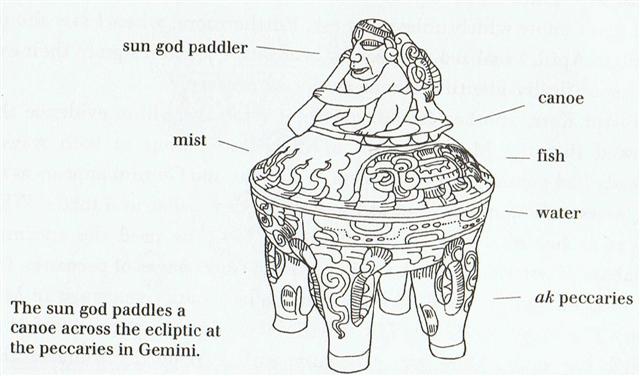
... During his descent the ancestor still
possessed the quality of a water spirit, and his body, though
preserving its human appearance, owing to its being that of a
regenerated man, was equipped with four flexible limbs like
serpents after the pattern of the arms of the Great Nummo. The
ground was rapidly approaching. The ancestor was still standing,
his arms in front of him and the hammer and anvil hanging across
his limbs. The shock of his final impact on the earth when he
came to the end of the rainbow, scattered in a cloud of dust the
animals, vegetables and men disposed on the steps. When calm was
restored, the smith was still on the roof, standing erect facing
towards the north, his tools still in the same position. But in
the shock of landing the hammer and the anvil had broken his
arms and legs at the level of elbows and knees, which he did not
have before. He thus acquired the joints proper to the new human
form, which was to spread over the earth and to devote itself to
toil ...

 |
 |
 |
 |
 |
 |
 |
|
Kua oho ki te nuku honu |
mai tae huri ïa |
ki te motomotou honu
|
kua tuu ki te hau tea |
e vaha te manu ariga hiti |
kua vero ko te tai |
mai tae noho ki te hau tea |
|
Tai.
1. Ocean, sea (often used without an
article); he-turu au ki tai hopu, I am going
down to the sea to bathe. 2. To be calm, good for
fishing: he tai. There exists a surprisingly
developed terminology for distinguishing the phases
of the tides: tai pâpaku, low tide;
ku-gúgú-á te tai, tide at his lowest, literally
'the sea has dried up'; he-ranu te tai, when
the water starts rising again; this is a strange
expression, since ranu means 'amniotic
liquid,' the breaking of the waters which precedes
birth; in this phase of the tides the fish start
coming out of their hiding places and swim to the
coast in search of food; tai hahati, rising
tide; tai hini hahati, tide as it continues
rising; tai u'a, tai u'a parera, when the
tide has reached its high; tai hini u'a, tide
all throughout its full phase; tai hori, tide
as it starts receding; tai ma'u, tide during
its decreasing phase, right until it becomes tai
pâpaku again; tai raurau a riki, the
slight swell, or effervescence of the sea at a
change of the moon. 3. Good spot for raising
chickens; the stone chicken coops called hare
moa, were built in places 'tai moa'.
Ahé te tai o taau moa? whereabouts are the
raising grounds of your chickens? 4. Song in
general; song executed by a group of singers;
ku-garo-ana i a au te kupu o te tai, I have
forgotten the words of the song. Taitai,
tasteless; said especially of sweet potatoes and
other produces of the soil which do not taste good
for being too watery; kumara taitai, watery,
tasteless sweet potato. Vanaga. 1. Salt water;
taitai, brackish, salty. P Mgv., Mq., Ta.:
tai, salt water. Mq.: taitai, to salt.
Ta.: taitai, salty. 2. Sea, ocean; tai
hati, breakers; tai hohonu, depths of the
sea; tai kaukau, tide; tai negonego,
tide; tai o, ripple; tai parera, tide;
tai poko, breakers; tai titi, tide;
tai ua, tide, ebb; tai vanaga, ripple. P
Mgv., Mq., Ta.: tai, sea, ocean. 3. Ta.:
tai-ao, dawn. Mq.: takitaki te ao, just
before dawn. Churchill. |
|
Ba8-1 (295) |
Ba8-2 |
Ba8-3 |
Ba8-4 → 3-25 |
Ba8-5 |
Ba8-6 (300) |
Ba8-7 |
|
VISIBLE CLOSE TO
THE FULL MOON: |
|
CHANG SHA (Long Sand-bank) =
ζ Corvi
(186.3) |
INTROMETIDA (Inserted) =
ε
Crucis (187.4),
ACRUX =
α
Crucis
(187.5)
*146.0 = *187.4 - *41.4 |
γ Com. Berenicis (188.0), σ Centauri (188.1),
ALGORAB = δ Corvi
(188.5),
GACRUX = γ Crucis
(188.7) |
γ
Muscae (189.0),
AVIS SATYRA (Bird of the Satyrs) =
η
Corvi
(189.3),
ASTERION (Starry) =
β
Canum Ven.
(189.5),
KRAZ = β Corvi,
κ Draconis (189.7) |
α Muscae (190.2), τ Centauri (190.5), χ Virginis (190.7)
ALDERAMIN (α Cephei) |
Al Áwwā'-11 (The Barker) /
Shur-mahrū-shirū-18 (Front or
West Shur)
SOMBRERO GALAXY = M104 Virginis
(191.1),
ρ
Virginis (191.4),
PORRIMA =
γ
Virginis,
γ
Centauri (191.5)
*150.0 = *191.4 - *41.4 |
ι Crucis (192.2), β Muscae (192.5),
MIMOSA
= β Crucis
(192.9) |
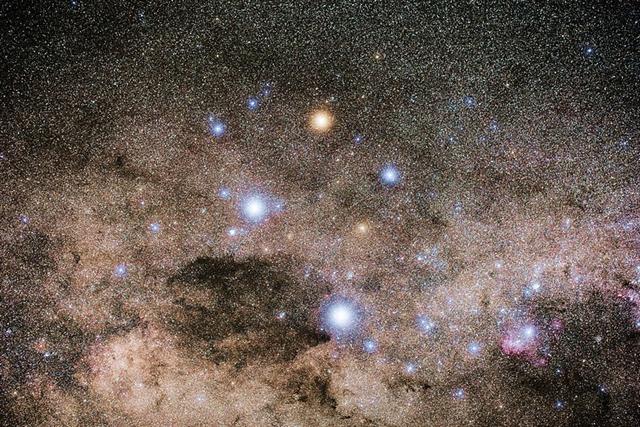 |
|
JULY 21 |
22 / 7 → π
|
23 |
24 |
25 (88 + 118) |
26 (191 + 16) |
27 (208) |
|
5 |
|
... Midsummer is the flowering season of the
oak, which is the tree of endurance and
triumph, and like the ash is said to 'court
the lightning flash'. Its roots are believed
to extend as deep underground as its
branches rise in the air - Virgil mentions
this - which makes it emblematic of a god
whose law runs both in Heaven and in the
Underworld ... The month, which takes its
name from Juppiter the oak-god, begins on
June 10th and ends of July 7th. Midway comes
St. John's Day, June 24th, the day on which
the oak-king was sacrificially burned alive.
The Celtic year was divided into two halves
with the second half beginning in July,
apparently after a seven-day wake, or
funeral feast, in the oak-king's honour
... |
|
INVISIBLY CLOSE
TO THE SUN: |
|
No star listed
(4) |
ANKAA = α Phoenicis,
κ
Phoenicis (5.0)
ALPHARD (α Hydrae) |
λ Phoenicis (6.3),
β Tucanae
(6.4)
*6.4 - *41.4 =
*147.0 - 182.0 = - *35.0 |
ANDROMEDA GALAXY (M31), π Andromedae
(7.7) |
ε
Andromedae (8.2),
DELTA =
δ Andromedae (8.4),
SCHEDIR (Breast) = α Cassiopeiae
(8.6),
ζ
Andromedae,
μ
Phoenicis (8.9)
*8.4 - *41.4 = *149.0 - 182.0 = - *33.0 |
ξ
Phoenicis (9.0),
ρ
Tucanae (9.1),
DENEB KAITOS (Tail of the Sea Beast) =
β
Ceti,
η
Phoenicis (9.4), AL NITHĀM (String of Pearls) =
φ¹
Ceti
(9.6)
*9.4 - *41.4 = *150.0 - 182.0 = - *32.0 |
ACHIRD (Woman with Luminous Rays) =
η
Cassiopeiae
(10.7) |
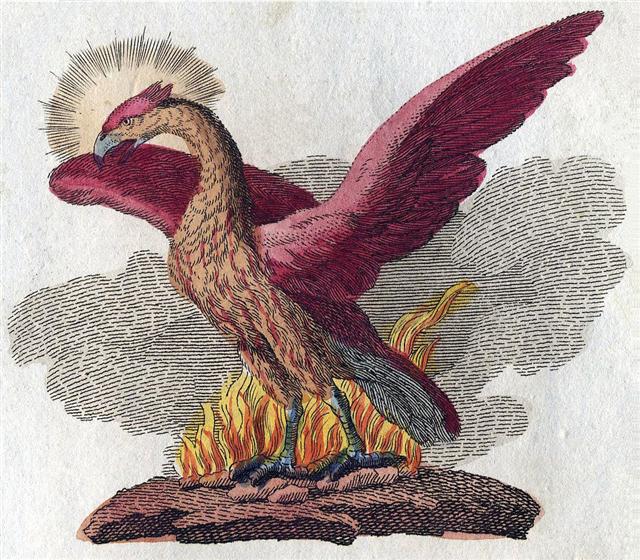 |
|
Julian equinox |
March 26 (85) |
27 (451) |
28 |
29 (88) |
30 |
31 (208 - 118) |
In the center of this cardinal week was the species of Man:
Tagata. Man; human being in general; the plural is
gagata. Vanaga. Man, mankind; tagata ke, some one
else; tagata no, nation. P Pau.: tagata, man.
Mgv.: tagata, man or woman. Mq.: enata, enana,
kenana, man. Ta.: taata, id. Tagataa,
incarnate. Tagatahaga, human, humanity. Churchill.
 |
 |
 |
 |
 |
 |
 |
|
Ba8-8 |
Ba8-9 |
Ba8-10 |
Ba8-11 |
Ba8-12 |
Ba8-13 |
Ba8-14 (308) |
|
ki te henua |
ka kau ko te kea i te henua |
koia ra kua hanau |
i te ariki |
e tarahoi |
no te nuku |
|
Hanau. 1. Race, ethnic group.
Hanau eepe, the thick-set race; hanau momoko,
the slender race (these terms were mistranslated as
'long-ears' and 'short-ears'). 2. To be born. Hanau
tama, pregnant woman; vî'e hanau poki,
midwive (also: vî'e hakaa'u). Vanaga. To
be born; vie hanau, midwife. P Pau.: fanauga,
child, descendant, progeny. Mgv.: hanau, to be
born, to be brought into the world. Mq.: fanau,
hanau, to be born, to lie in, to bring into the
world. Ta.: fanau, to be born, to lie in.
Churchill.
Nuku.
1. Pau.: nuka, crowd, throng. Ta.:
nuú, army, fleet. Mg.: nuku, a host, army. 2.
Mgv.: nuku, land, country, place. Sa.: nu'u,
district, territory, island. Churchill. |
|
VISIBLE CLOSE TO THE
FULL MOON: |
|
No star listed (193) |
κ
Crucis (194.4),
ψ
Virginis (194.5),
μ
Crucis,
λ
Crucis (194.6),
ALIOTH (Fat Tail) =
ε
Ursae Majoris,
ι
Oct.
(194.8)
*153.0 = *194.4 - *41.4 |
MINELAUVA =
δ
Virginis
(195.1),
COR CAROLI =
α
Canum Ven.
(195.3) |
δ
Muscae (196.5) ,
VINDEMIATRIX (Grape Gatherer) =
ε
Virginis
(196.8) |
13h (197.8)
ξ¹ Centauri (197.1), ξ² Centauri (197.9) |
APAMI-ATSA (Child of Waters) =
θ
Virginis,
ψ
Hydrae (198.5),
DIADEM =
α
Com. Ber.
(198.9) |
AL DAFĪRAH (Tuft) =
β
Com. Ber.
(199.4)
*158.0 = *199.4 - *41.4 |
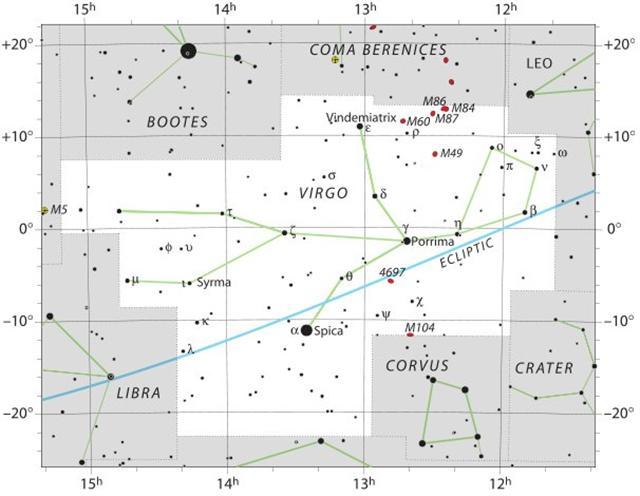 |
|
JULY 28 |
29 (210) |
30 |
31 (196 + 16) |
AUG 1 |
2 (214) |
3 |
|
INVISIBLY CLOSE TO
THE SUN: |
|
April 1 (91) |
2 (210 - 118) |
3 |
4 |
5 |
6 |
7 |
|
Legs-15 (Wolf)
ν
Andromedae (11.0),
φ²
Ceti (11.1),
ρ
Phoenicis (11.2),
η
Andromedae (11.4)
*335.0 = *11.4 - *41.4 |
CIH (Whip) = γ Cassiopeiae, λ Tucanae (12.4), φ³ Ceti (12.6), μ Andromedae (12.8)
*336.0 = *12.4 - *41.4 |
φ4 Ceti (13.2) |
No star listed (14) |
1h (15.2)
β Phoenicis (15.1), υ Phoenicis, ι Tucanae (15.6), η
Ceti, ζ Phoenicis (15.7) |
Al Batn Al Hūt-26 (Belly of the Fish) /
Revati-28 (Prosperous) /
1-iku (Field Measure)
MIRACH (Girdle) =
β
Andromedae,
KEUN MAN MUN (Camp's South Gate) =
φ
Andromedae
(16.0),
ANUNITUM =
τ
Piscium
(16.5),
REVATI (Abundant) =
ζ
Piscium
(16.9)
REGULUS
(α Leonis |
ν Phoenicis
(17.4), κ Tucanae (17.6) |
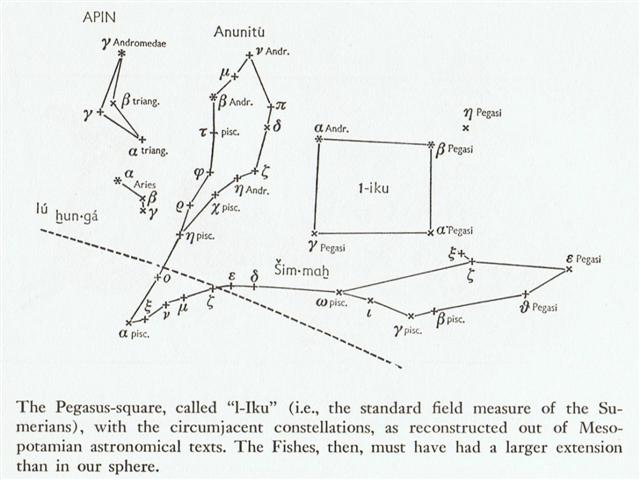 |
|
... At the beginning of 44 B.C. - when Ceasar was still
alive - the Senate decided to raise statues of him in
all the temples and to sacrifice to him on his birthday
in the month Quintilis, which in honour of him
was renamed July. He was raised to the status of a god
(among the other gods of the state) under the name
Jupiter Julius. Marcus Antonius, who this year was
consul together with Caesar, became high priest and
responsible for the ceremonies. In the middle of
February, at the time of the old feast of Lupercalia
[Lupus = Wolf], he ran around naked and whipped
the Roman ladies with thongs made from goat-skin [februa],
in order to promote their fertility ... |
The Wolf seems to be an aspect of the Unbounded Mother (Aditi), because the
twins Romulus (→ Rome)
and Remus were nurtured by a wolf:

... In Hindu legend there was a mother
goddess called Aditi, who had seven offspring. She is
called 'Mother of the Gods'. Aditi, whose name means
'free, unbounded, infinity' was assigned in the ancient lists of
constellations as the regent of the asterism Punarvasu.
Punarvasu is dual in form and means 'The Doublegood
Pair'. The singular form of this noun is used to refer to the
star Pollux. It is not difficult to surmise that the other
member of the Doublegood Pair was Castor. Then the constellation
Punarvasu is quite equivalent to our Gemini, the Twins.
In far antiquity (5800 BC) the spring equinoctial point was
predicted by the heliacal rising of the Twins ...
The pair of fishes in the Pisces constellation were probably
also considered as twins.
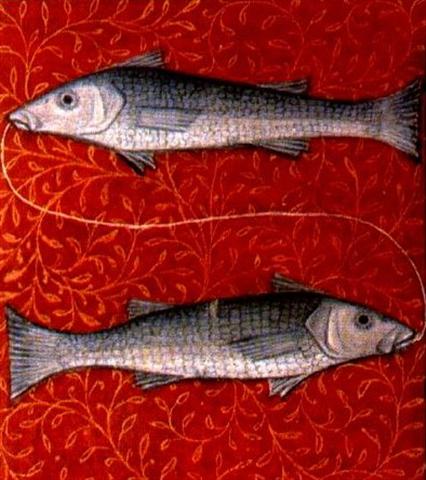
But only one of them, viz. the
northern one, was warmed by the armpit of Andromeda.
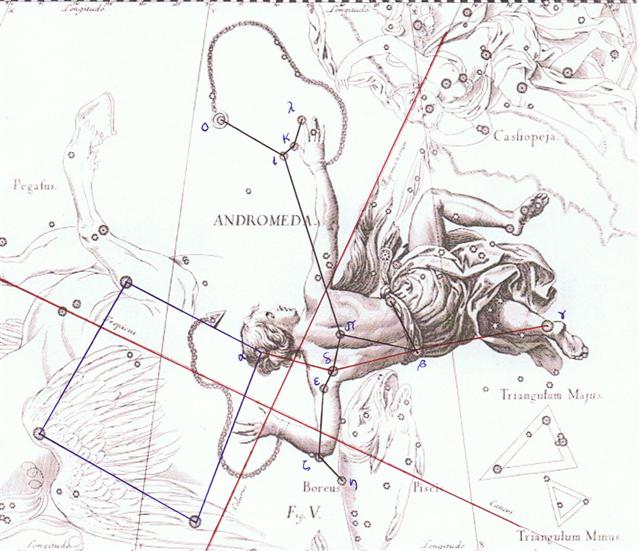
... In the beginning there was nothing but
the sea, and above soared the Old-Spider. One day the Old-Spider
found a giant clam, took it up, and tried to find if this object
had any opening, but could find none. She tapped on it, and as
it sounded hollow, she decided it was empty. By repeating a
charm, she opened the two shells and slipped inside. She could
see nothing, because the sun and the moon did not then exist;
and then, she could not stand up because there was not enough
room in the shellfish. Constantly hunting about she at last
found a snail. To endow it with power she placed it under her
arm, lay down and slept for three days. Then she let it free,
and still hunting about she found another snail bigger than the
first one, and treated it in the same way. Then she said to the
first snail: 'Can you open this room a little, so that we can
sit down?' The snail said it could, and opened the shell a
little. Old-Spider then took the snail, placed it in the west of
the shell, and made it into the moon. Then there was a little
light, which allowed Old-Spider to see a big worm. At her
request he opened the shell a little wider, and from the body of
the worm flowed a salted sweat which collected in the lower
half-shell and became the sea. Then he raised the upper
half-shell very high, and it became the sky. Rigi, the
worm, exhausted by this great effort, then died. Old-Spider then
made the sun from the second snail, and placed it beside the
lower half-shell, which became the earth ...
In ancient Egypt there was a Wolf-god, necessary for the Pharaoh
to visit at the beginning of his cycle:
|
Egyptian bread, (-t,
female determinant) |
 |
Phoenician
qoph |
 |
Greek
phi |
Φ(φ) |
|
... is the 21st letter of the Greek
alphabet ... Its origin is uncertain but it may be
that phi originated as the letter qoppa ... In
traditional Greek numerals, phi has a value of 500
or 500000 ...
Isaac
Taylor, History of the Alphabet: Semitic
Alphabets, Part 1, 2003: 'The old explanation,
which has again been revived by Halévy, is that it
denotes an 'ape,' the character Q being taken
to represent an ape with its tail hanging down. It
may also be referred to a Talmudic root which would
signify an 'aperture' of some kind, as the 'eye of a
needle,' ... Lenormant adopts the more usual
explanation that the word means a 'knot' ...

...
The king, wearing now a short, stiff archaic mantle,
walks in a grave and stately manner to the sanctuary
of the wolf-god Upwaut, the 'Opener of the
Way', where he anoints the sacred standard and,
preceded by this, marches to the palace chapel, into
which he disappears. A period of time elapses during
which the pharaoh is no longer manifest.
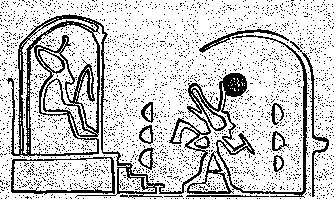
When
he reappears he is clothed as in the Narmer palette,
wearing the kilt with Hathor belt and bull's
tail attatched. In his right hand he holds the flail
scepter and in his left, instead of the usual crook
of the Good Shepherd, an object resembling a small
scroll, called the Will, the House Document, or
Secret of the Two Partners, which he exhibits in
triumph, proclaiming to all in attendance that it
was given him by his dead father Osiris, in
the presence of the earth-god Geb. 'I have
run', he cries, 'holding the Secret of the Two
Partners, the Will that my father has given me
before Geb. I have passed through the land
and touched the four sides of it. I traverse it as I
desire.' ...
.jpg) |
The text on this ebony tablet (the Den tablet) is
far from straightforward. Another translation:
... Ebony label EA 32650 from Den's
tomb. The upper right register depicts king Den twice: at the
left he is sitting in his Hebsed pavilion, at the right he is
running a symbolic race around D-shaped markings. This ceremony
is connected to the so-called 'race of the Apis bull'. The
middle right section reports about the raid of the city
'beautiful door' and about a daughter of Den suffering from an
unknown disease. The lower right section reports about the
visitation of the 'souls of Peh' at the royal domain 'Wenet'.
The left part of the label describes the content of the vessel
that once belonged to the label and mentions the high official
Hemaka, who was obviously responsible for the delivery of
the labeled jar ...
The D-shaped markings suggest a similarity with the maitaki
type of glyph, as exemplified at heliacal Acrux:
|
ACRUX |
|
SUN |
FULL
MOON |
|
 |
 |
|
Ga5-13 (123 = 187
- 64) |
Ba8-2 (296 = 370
- 74) |
|
Sept 24 (267) |
March 26 (85 =
267 - 182) |
|
JULY 22 (203 =
267 - 64) |
JAN 21 (85 - 64) |
|
FULL
MOON |
SUN |
|
JAN 21 (203 -
182) |
JULY 22 (203 = 21
+ 182) |
|
March 26 (85 = 21
+ 64) |
Sept 24 (203 + 64
= 267) |
5-13 could be alluding to 3 * 171 = 513, where 171
then would refer to
APRIL 17 (107) with OCTOBER 17 (290) visible close to the
Full Moon.
|
 |
63 |
 |
|
Ga5-13 (123 = 187
- 64) |
Ga7-18 (187) |
|
JULY 22 (203 =
267 - 64) |
SEPT
24 (267) |
|
JAN 21 (85 - 64) |
MARCH
26 (85) |
JANUARY 21 was 11 + 21 = 32 days after the solstice in DECEMBER
21 (355), and therefore MARCH 26 was 3 * 32 = 96 days after the
solstice.
... Ogotemmêli had his own ideas about
calculation. The Dogon in fact did use the decimal system,
because from the beginning they had counted on their fingers,
but the basis of their reckoning had been the number eight and
this number recurred in what they called in French la
centaine, which for them meant eighty. Eighty was the limit
of reckoning, after which a new series began. Nowadays there
could be ten such series, so that the European 1,000
corresponded to the Dogon 800. But Ogotemmêli believed that in
the beginning men counted by eights - the number of cowries on
each hand, that they had used their ten fingers to arrive at
eighty, but that the number eight appeared again in order to
produce 640 (8 x 10 x 8). 'Six hundred and forty', he said, 'is
the end of the reckoning.' According to him, 640 covenant-stones
had been thrown up by the seventh Nummo to make the outline in
the grave of Lébé ...
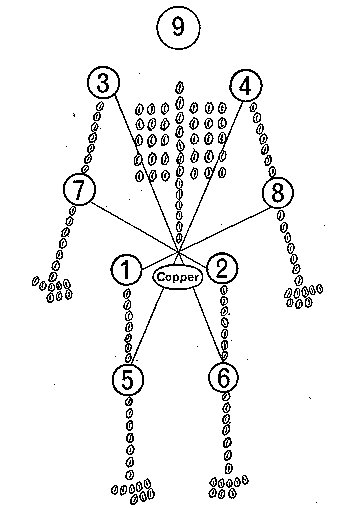
|
 |
|
maitaki |
Maitaki. Clean, neat, pure, pretty, nice, beautiful,
handsome; tagata rima maitaki, clean-handed
man, correct man. Vanaga. 1. Good. Henua maitaki =
the good earth. 2. Shine. Marama maitaki = the
shining moon. Barthel. Ce qui est bon. Jaussen according to
Barthel. Meitaki, good, agreeable, efficacious,
excellent, elegant, pious, valid, brilliant, security, to
please, to approve (maitaki); ariga meitaki,
handsome, of pleasant mien; mea meitaki ka rava, to
deserve; meitaki ke, marvelous, better.
Hakameitaki, to make good, to amend, to do good, to
bless, to establish. Meitakihaga, goodness. PS Pau.:
maitaki, good. Mgv.: meitetaki, beautiful,
good. Mq.: meitai, good, agreeable, fit, wise,
virtuous. Ta.: maitaiki, good, well. Niuē:
mitaki, good.
Maitakia, clean.
Churchill.

|













.jpg)


.jpg)

